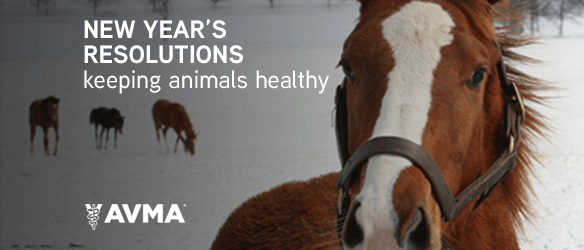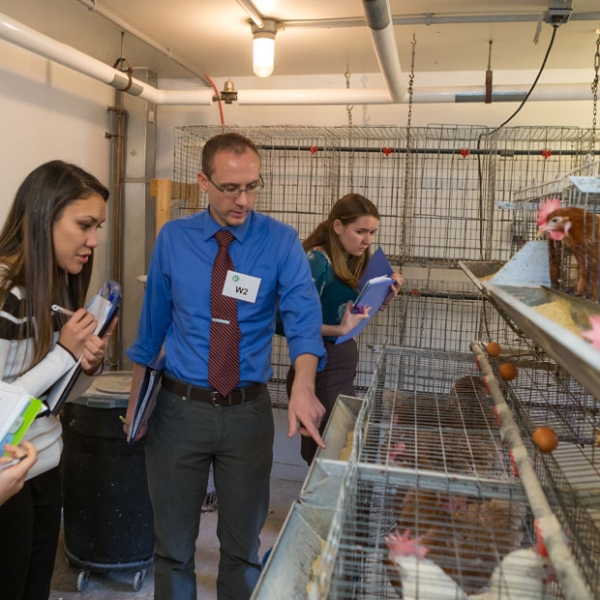Resolve to share New Year’s resolutions with pet owners

You’ve made resolutions for yourself and your business to support personal wellbeing and practice success in the coming year. Now spread the love and help your clients commit to improving the lives of their pets by maintaining good pet health in 2019. To give them a little nudge, share these tips to help your clients make their resolutions a reality.
Plan ahead for pet care: You can’t prevent every illness or injury, but preparing in advance for a fire or natural disaster can ensure your clients and their pets stay safe and protected. AVMA has resources your clients can use to plan for all types of emergencies and keep their animals safe. Materials include first aid tips, a pet evacuation kit checklist, and guidance on what to do after a disaster event.
Diet and Exercise: Published studies suggest that up to 59% of dogs and cats may be overweight, and there is no single cause or cure. Urge pet owners to keep themselves and their pets healthy with a nutritious diet and regular exercise. You can use our obesity education toolkit to start the conversation. These materials will help you show clients how much extra weight their animals may be carrying around, help them understand the associated risks, and enlist them as partners in preventing and reducing obesity. In addition to general education materials, there also are tailored tools specific to canine, feline, and equine obesity.
If weight loss is a goal in the new year, work with your client to assess their pet’s caloric needs and develop a safe weight reduction plan. They also can use activity monitors and schedule regular weigh-ins throughout the year to be certain their pet is on track toward a healthy weight.
Good health begins with a complete physical: Remind your clients that regular visits to the veterinarian are an important way to stay healthy and catch illnesses and injuries early before they become bigger - and possibly more expensive - problems. In addition to vaccinations, parasite prevention, and other preventive care, a complete examination can catch “invisible” health issues, like hypothyroidism, hypoadrenocorticism (Cushing’s Syndrome), and others of which clients may not be aware.
On behalf of the AVMA, we wish you, your clients, and your patients a happy and healthy 2019!


Comments
Add New Comment